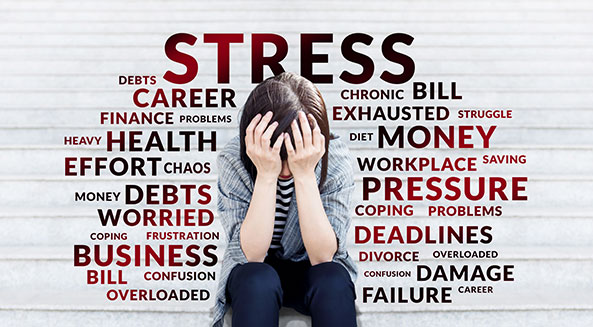In the fast-paced world we live in, stress has become an unwelcome companion for many. However, the good news is that effective stress therapy counseling techniques can offer a roadmap to navigate and alleviate stress. This blog post explores various strategies that therapists employ to guide individuals towards a more balanced and resilient state of mind.
Understanding Stress and its Impact:
The Modern Stress Landscape:
In the hustle and bustle of contemporary life, stress is an almost constant companion. From work pressures to personal challenges, navigating the complexities of daily life can take a toll on our mental well-being.
Impact on Mental Health:
Chronic stress can have profound effects on mental health, leading to anxiety, depression, and other related issues. It's essential to address stress proactively, and therapy counseling provides a tailored approach to do just that.
Therapy Counseling Techniques for Stress Management:
1. Cognitive-Behavioral Therapy (CBT):
CBT is a widely used therapeutic approach that focuses on identifying and challenging negative thought patterns. By restructuring distorted thinking, individuals can develop healthier perspectives, leading to reduced stress levels.
2. Mindfulness-Based Stress Reduction (MBSR):
MBSR incorporates mindfulness meditation and awareness techniques to help individuals stay present in the moment. This practice enhances one's ability to respond to stressors with greater clarity and composure.
3. Relaxation Techniques:
Therapists often introduce relaxation techniques, such as deep breathing exercises, progressive muscle relaxation, or guided imagery. These methods promote physical and mental relaxation, counteracting the physiological effects of stress.
4. Solution-Focused Brief Therapy (SFBT):
SFBT is a goal-oriented therapy that emphasizes solutions rather than dwelling on problems. By focusing on achievable goals and practical steps, individuals can feel a sense of empowerment and control over their circumstances, reducing stress.
5. Emotional Regulation Techniques:
Emotional regulation involves developing skills to manage and express emotions in a healthy way. Therapy counseling teaches individuals how to recognize and regulate emotions effectively, preventing them from escalating into overwhelming stress.
Incorporating Stress Management Into Daily Life:
1. Establishing Healthy Boundaries:
Setting boundaries is crucial for preventing stress from accumulating. Therapists assist individuals in identifying and communicating their limits, promoting a balanced and manageable lifestyle.
2. Time Management Strategies:
Effective time management is a key component of stress reduction. Therapists work with clients to prioritize tasks, set realistic goals, and create a structured schedule that allows for breaks and relaxation.
3. Self-Care Practices:
Promoting self-care is integral to stress management. Therapy counseling encourages individuals to engage in activities that bring joy and relaxation, whether it's practicing a hobby, spending time in nature, or enjoying moments of quiet reflection.
The Human Connection in Therapy Counseling:
Building a Supportive Relationship:
The therapeutic relationship itself is a powerful tool in stress management. The connection between therapist and client provides a safe and non-judgmental space for individuals to express their concerns and receive guidance.
Encouraging Open Communication:
Therapy counseling emphasizes open communication, allowing individuals to articulate their stressors, fears, and aspirations. This dialogue fosters a sense of validation and understanding, reducing the emotional burden of stress.
Conclusion: Empowering Stress Resilience
In conclusion, therapy counseling techniques offer a multifaceted approach to managing stress. By incorporating evidence-based therapeutic strategies into daily life, individuals can build resilience, navigate challenges with greater ease, and foster a more positive outlook on their mental well-being. As we embrace the wisdom of therapy counseling, we empower ourselves to not only cope with stress but to thrive in the face of life's inevitable pressures.
#stress therapy, #stress management, #relieve stress, #how to manage stress





Comments